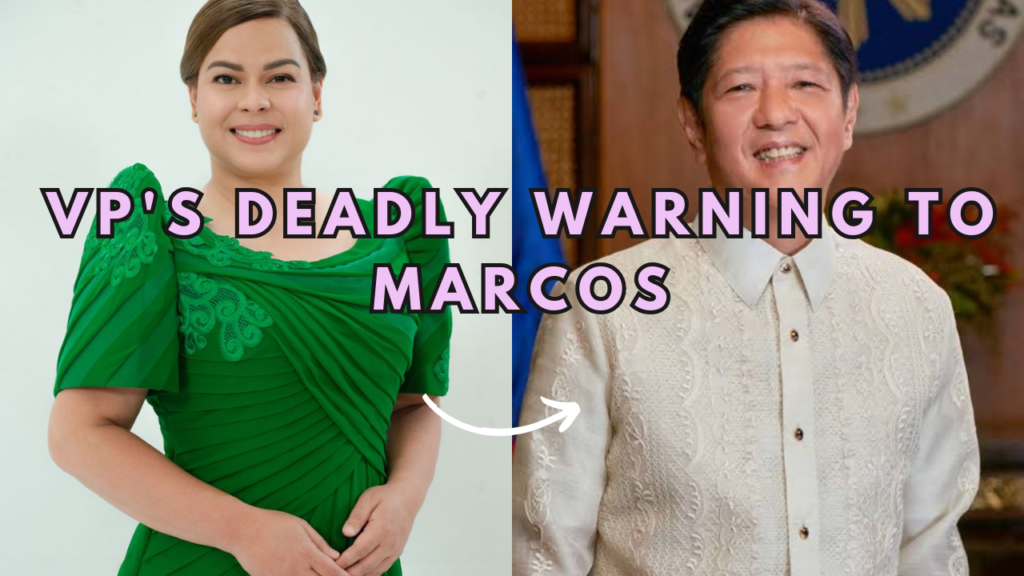Political Tensions Reach Critical Point
The Philippine political landscape faces unprecedented tension as Vice President Sara Duterte issues a shocking assassination threat against President Ferdinand Marcos Jr. The threat emerged during an early morning press conference on November 23, sending shockwaves through the nation’s political sphere.
Vice President Duterte openly declared she had arranged for President Marcos’s assassination if any harm came to her. She included First Lady Liza Araneta and House Speaker Martin Romualdez in her threatening statement. This dramatic escalation marks a significant breakdown in the relationship between the country’s top leaders.
The statement has sparked widespread concern about the stability of the Philippine government and raised questions about the future of democratic institutions in the country.
National Security Response and Investigation
The Philippine VP’s threats prompted immediate action from national security forces. Eduardo Ano, the National Security Adviser, announced enhanced protection protocols for the president and his family. The situation has been classified as a matter of highest national security concern.
The presidential security command has strengthened its defensive measures across multiple locations. Additionally, the national police chief ordered a thorough investigation into the matter, mobilizing special units to assess the credibility of the threats.
Security experts have begun reviewing all potential vulnerabilities in the president’s security detail. The government has also increased surveillance and monitoring of potential security risks associated with the threat.
Historical Context of Political Rivalry
The Philippine VP’s assassination threat follows months of deteriorating relations between the two leaders. Their once-strong political partnership has crumbled over disagreements on various policies and governance approaches.
Their differences span multiple critical areas:
Foreign policy approaches and international relations
War on drugs policies and implementation strategies
Government spending allocations and budget priorities
Congressional investigations and oversight matters
Regional development initiatives
The breakdown in their relationship reflects deeper divisions within Philippine politics, highlighting the fragile nature of political alliances in the country.
Impact on Government Operations
The crisis has significantly affected day-to-day government operations. Several key policy initiatives have been put on hold as both camps navigate this tense situation. The threat has created an atmosphere of uncertainty within government agencies.
Cabinet members and other officials find themselves caught between competing loyalties. Some departments have reported difficulties in coordinating activities that require approval from both offices.
The situation has also impacted:
International diplomatic relations
Economic policy implementation
National security coordination
Legislative agenda progress
Philippine Political Crisis Deepens
The situation represents a critical moment in Philippine politics as the VP threatens Marcos assassination. The growing rift between these powerful political families raises serious concerns about the nation’s stability and democratic future.
The crisis has revealed underlying tensions in Philippine politics and governance structures. It highlights the need for stronger institutional safeguards against political violence and threats.
What are your thoughts on this unprecedented political crisis in the Philippines? Share your views in the comments below.







